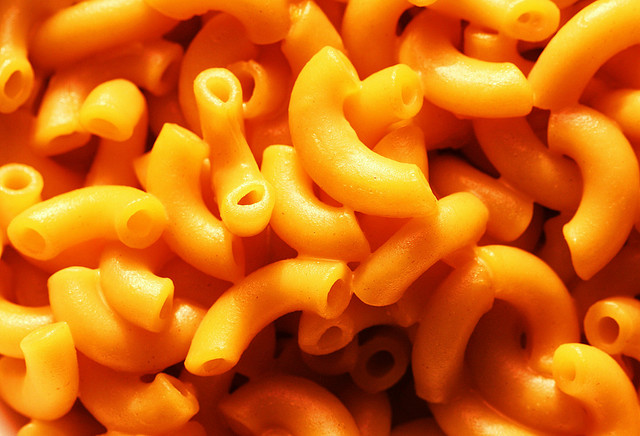Sky Dylan-Robbins and Matt Buchanan link the persistent popularity of powdered cheese to American war history:
Cheese may be “milk’s leap toward immortality,” as the writer Clifton Fadiman once put it, but until the development of processed cheese in the early twentieth century, it still readily spoiled. Processed cheese is made by heating and melting regular cheese and adding emulsifying salts, leaving it, as James L. Kraft stated in his patent application in 1916, in “such condition that it may be kept indefinitely without spoiling.” Kraft had great initial success selling some six million pounds of processed cheese to the U.S. government during the First World War; our taste for less than natural cheese products has thus been intertwined with war since the beginning.
But it turns out that an even better way to keep cheese from spoiling is to dehydrate it. In the most popular method, “spray-drying,” liquid is sprayed into a chamber and blasted with hot air. The liquid evaporates, and the remaining solid, a dry particle, is left behind. … Spray-drying first saw extensive use during the Second World War, granting near-immortality to otherwise perishable food products, from eggs to ice cream. So-called dehydrated cheese products, a category that includes both cheese powders and dried, grated cheese, “were developed for the U.S. Army … as a means of preserving cheese solids under conditions to which natural cheese would not normally be subjected,” according to “The Fundamentals of Cheese Science.” (The rations of German soldiers also included powdered cheese.) Gradually, dehydrated cheese and packaged macaroni and cheese became staples over the course of the war.
(Photo of boxed mac & cheese by D. Sharon Pruitt)
